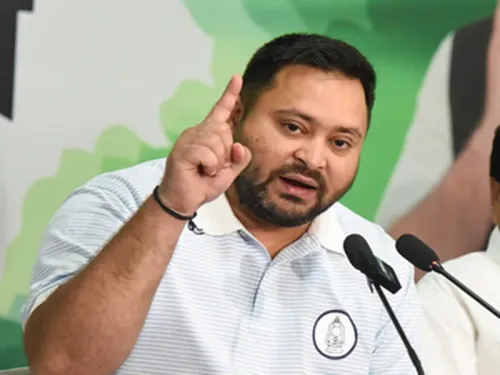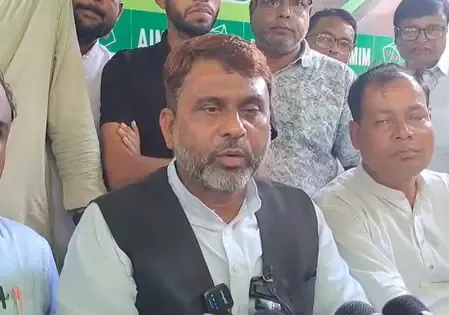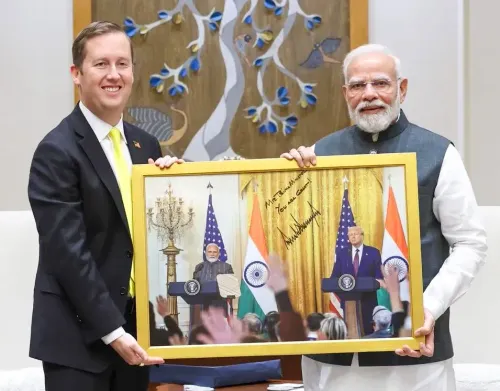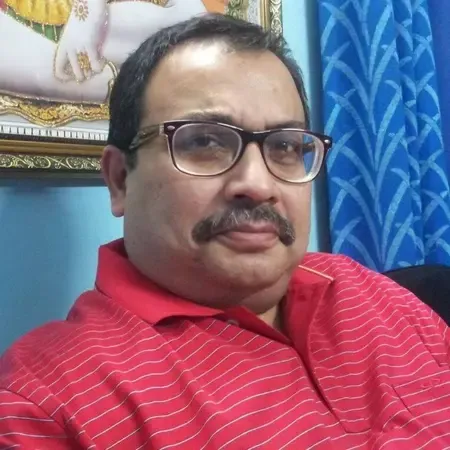How is Aatmanirbharta in Pulses Transforming Manipur's Agriculture?
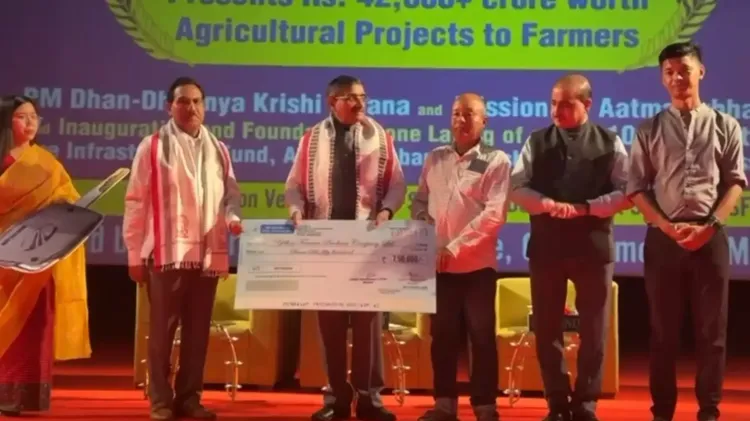
Synopsis
Key Takeaways
- Manipur's participation in national agricultural initiatives.
- Focus on sustainable farming practices and nutritional security.
- Distribution of seed kits to farmers for enhanced productivity.
- Collaboration among departments for effective implementation.
- Empowerment of local farmers through tailored action plans.
Imphal, Oct 11 (NationPress) On Saturday, Manipur took part in the grand national launch of the Pradhan Mantri Dhan Dhaanya Krishi Yojana and the Mission for Aatmanirbharta in Pulses. These programs are designed to revolutionize the agricultural landscape and ensure nutritional security throughout India.
The state-level launch was held by the Department of Agriculture at the MSFDS Auditorium in Imphal. Esteemed attendees included Chief Secretary Puneet Kumar Goel, Vivek Kumar Dewangan, ACS (Agriculture), and Anurag Bajpai, ACS (Textiles, Commerce & Industry).
Awards and agricultural tools were distributed to farmers during the event, acknowledging their hard work and supporting their agricultural endeavors.
Chief Secretary Goel, in his address, underscored these two flagship initiatives as a testament to Prime Minister Narendra Modi’s visionary approach to enhancing Indian agriculture. The Pradhan Mantri Dhan Dhaanya Krishi Yojana will converge 36 existing schemes from 11 ministries, focusing on the 100 least developed agricultural districts across the country.
From Manipur, Tamenglong District has been chosen for prioritized development under the initiative. Goel urged all pertinent departments—including horticulture, fisheries, and water resources—to collaborate effectively to ensure the district’s advancement, with implementation set to commence in the upcoming Rabi season.
In parallel, the Mission for Aatmanirbharta in Pulses, with an investment of over Rs 11,000 crore until 2030-31, is aimed at enhancing domestic pulse production, curtailing imports, and advocating for sustainable agricultural practices. Approximately 88 lakh seed kits will be distributed to farmers at no cost nationwide.
Goel expressed optimism that with unified efforts, Manipur will be instrumental in the transformation of India’s agricultural sector.
He emphasized the considerable responsibilities assigned to farmers, local government officials, and district magistrates under the PM Dhan Dhaanya Krishi Yojana. The framework of the scheme allows for customized planning tailored to the specific needs of each district.
“I encourage farmers and district leaders to formulate district-level action plans that align with local soil and climatic conditions. Thoughtful collective choices are vital, including decisions on crop types, seed varieties, and suitable fertilizers,” outlined Goel.
He also noted that plans should be devised on a regional and individual farm basis.
“For example, in areas with ample water, specific crops are ideal; conversely, where water is limited, alternative crops should be selected. In regions where farming is impractical, animal husbandry and fisheries should be advocated, while beekeeping may be preferable in certain locations, and seaweed farming could be pursued in coastal areas,” he added.
Goel concluded by stating that the success of the PM Dhan Dhaanya Krishi Yojana hinges on effective local execution.
“Our young officials play a crucial role. Alongside farmers, they have the potential to reshape the agricultural framework in 100 districts across the nation. As agricultural dynamics evolve, the economy of each village will also be revitalized.”

